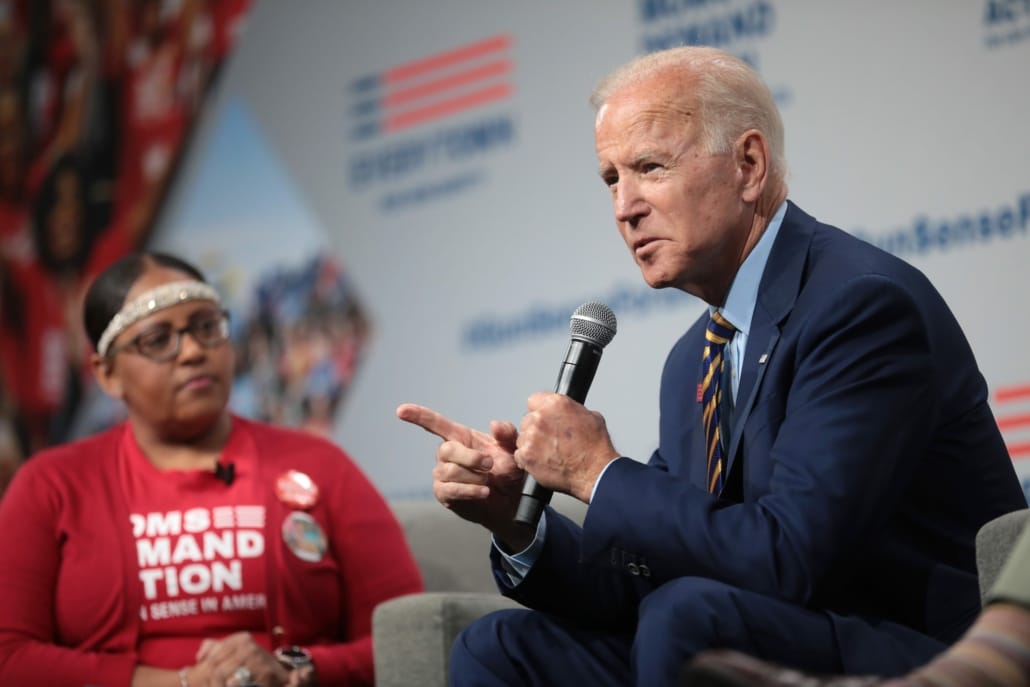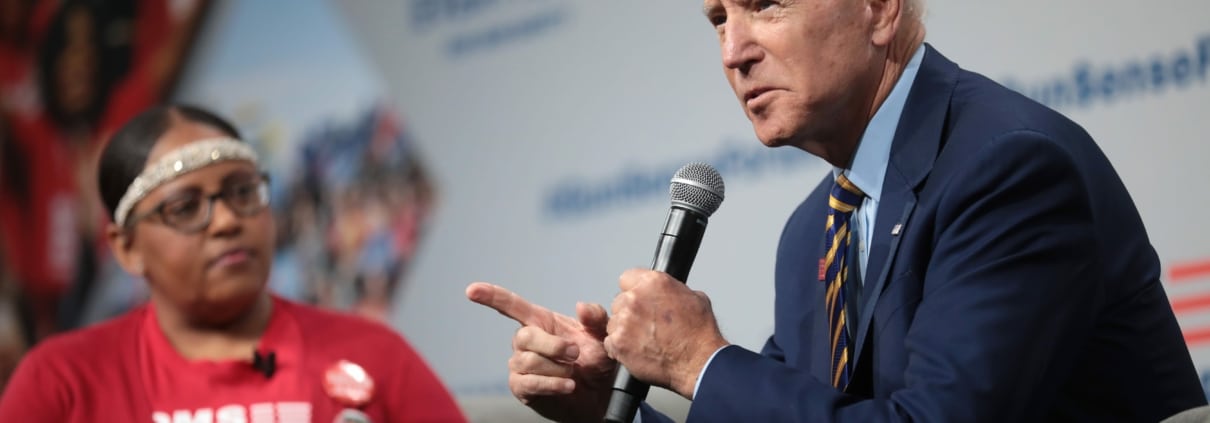How Biden Can Take His National Action Plan for Business Seriously

Last month, as President Biden’s European trip took center stage, his administration made a welcome but little-noticed commitment that the U.S. government will update what’s known as the National Action Plan (NAP) on responsible business conduct. Corporations, Secretary of State Antony Blinken observed, “have the capacity to help shape society and the environment, raising local wages, improving working conditions, building trust with communities, and operating sustainably.” To date, NAPs, including the one the outgoing Obama Administration put in place in 2016, haven’t made much of a difference. Now, the Biden team needs to produce a plan that will make meaningful new commitments to improve the lives of working people, in the U.S. and around the world with concrete benchmarks and timelines that measure progress.
Since 2014, 29 countries, most from Europe and North America, have produced NAPs. Another 14, mostly in Latin America, Africa, and Asia have agreed to do the same. The impetus for these plans was the adoption a decade ago of the United Nations Guiding Principles on Business and Human Rights (UNGPs). The UNGPs asserted that governments and companies should pay greater attention to how business conduct affects human rights. The national action plans were meant to encourage governments to set new standards, for example, relating to their own procurement of goods and services, and to set measures and timelines for government and others to gauge progress.
Most of these workers pay their own recruitment costs, often the equivalent of a year’s wages.
Unfortunately, governments, including in the U.S., haven’t taken the NAPs seriously. They have filled their plans with summaries of what they already are doing, declining to make specific commitments of future action or to include concrete metrics to measure progress. All too often, commerce ministries, with business interests uppermost in mind, have wrestled successfully with more rights-oriented voices in foreign ministries to block a more ambitious approach.
The first U.S. NAP was rushed to completion in the final weeks of Barack Obama’s presidency. His team correctly assumed that human rights would not be a priority for the Trump Administration. Then-Secretary of State John Kerry’s introduction of the plan focused almost exclusively on battling corruption. The Biden administration also has identified corruption as a high priority, and the updated NAP should amplify this commitment.
But it needs to go much further—for example, by outlining steps to address growing economic inequality laid bare by the global pandemic. A good place to start would be with global supply chains where human rights violations are commonplace. The NAP should tackle this issue by focusing primarily on government purchasing practices, recognizing that the U.S. government is a massive customer, buying roughly $600 billion of goods and services a year.
Last September, the NYU Stern Center for Business and Human Rights, which I direct, published a report urging the new administration to adopt stronger rules and oversight mechanisms to ensure responsible U.S. government global sourcing. The aim would be to ensure that U.S. government supply chains are free of forced and child labor, unsafe working conditions and irresponsible purchasing practices. The report proposed a phased implementation, perhaps with an initial focus on apparel and electronics manufacturing. Prioritizing U.S. sourcing practices would afford greater protections to these workers globally and help give American companies a more level playing field in which to compete.
Subscribe to the Ethical Systems newsletter
One area where the U.S. government has begun to set standards for its business partners involves the provision of private security services. In 2013, the U.S. government helped to launch an organization called the International Code of Conduct Association, ICoCA. Its mission is to set and enforce human rights standards for private security contractors around the globe. The State Department’s diplomatic security arm has made ICoCA membership mandatory for the private security contractors it hires. Through the new National Action Plan, the federal government should commit all U.S. government agencies, and most importantly the Department of Defense, to follow suit.
The National Action Plan also offers an opportunity to set tougher standards for combating child labor. UNICEF describes the exploitation of almost 160 million underage workers around the world. This problem is especially acute in a few industries, like cocoa farming in West Africa, rug-making in South Asia and cobalt mining in Central Africa. Cobalt is an essential component in batteries that power electric cars, computers, and cell phones. A recent report from the U.S. Department of Labor estimates that there are roughly 25,000 children mining cobalt in the Democratic Republic of Congo (DRC). The U.S. National Action Plan should propose adding cobalt to existing labor-reporting requirements for so-called conflict minerals in the DRC. The U.S. government also should work with American auto and electronics firms to advance a multi-stakeholder effort now underway that will set standards and metrics relating to child labor and worker safety in cobalt mines in the DRC.
The Biden Administration also should expand its labor diplomacy, adding specialized labor officers in U.S. embassies in countries where serious labor rights violations are prevalent. In the Arabian Gulf, for example, more than 10 million migrant construction workers, mostly from South Asia, are subject to various forms of exploitation. Most of these workers pay their own recruitment costs, often the equivalent of a year’s wages. This can lead to debt bondage, especially when these fees are paid with loans that carry very high interest rates. In Qatar, where the government is building a massive addition to the Al Udeid airbase, used principally by the U.S. Air Force, our government should demand that contractors pay the costs of worker recruitment consistent with the Federal Acquisition Regulation.
These are ambitious but very practical commitments that would make a strong National Action Plan—if it is enforced—a meaningful tool to achieve responsible business conduct. But as every successful business knows, if these commitments are to be undertaken successfully, they will need to be accompanied by dedicated resources and rigorous timelines. In its interaction with the business community, the National Action Plan can help the Biden administration shape what the President means when he promises to build back better.
Michael Posner is the Jerome Kohlberg professor of ethics and finance at NYU Stern School of Business and director of the Center for Business and Human Rights. Follow him on Twitter @mikehposner.
Reprinted with permission from Forbes.
Lead image: Gage Skidmore / Flickr






